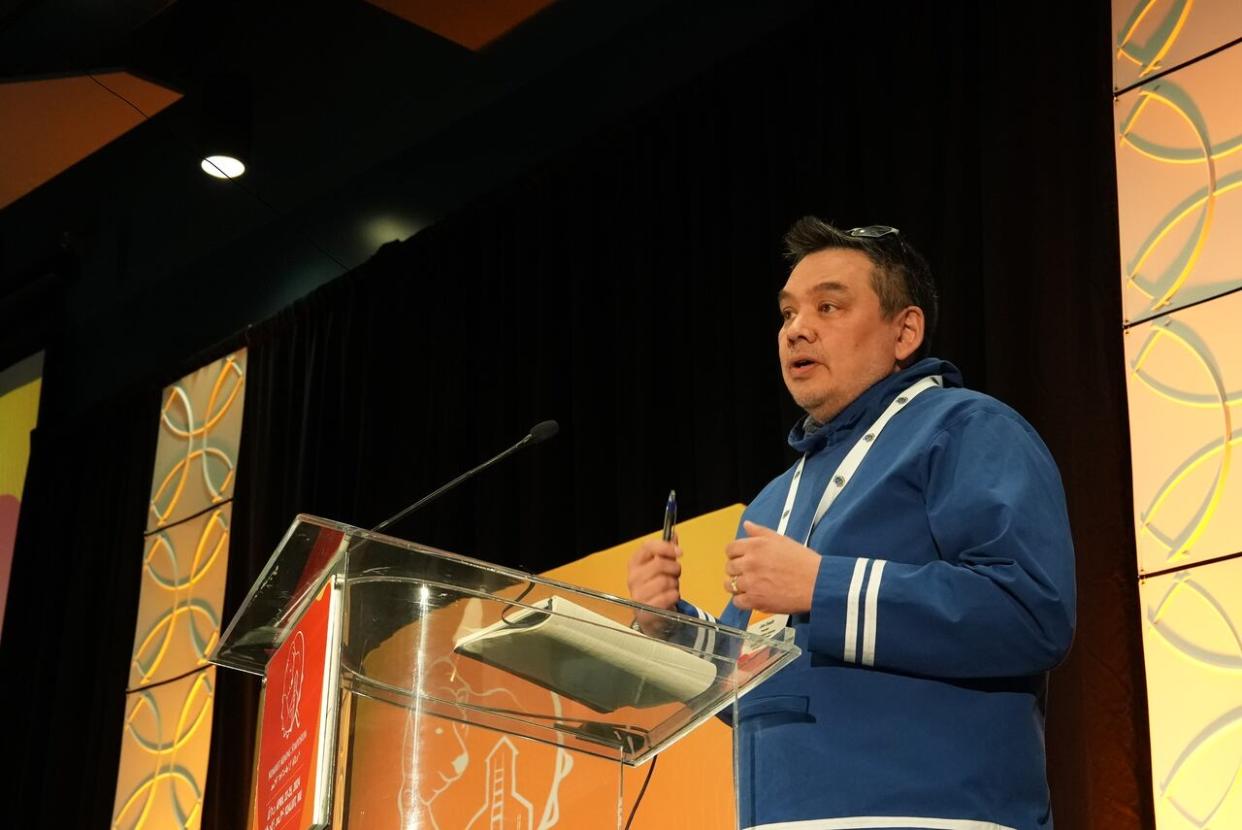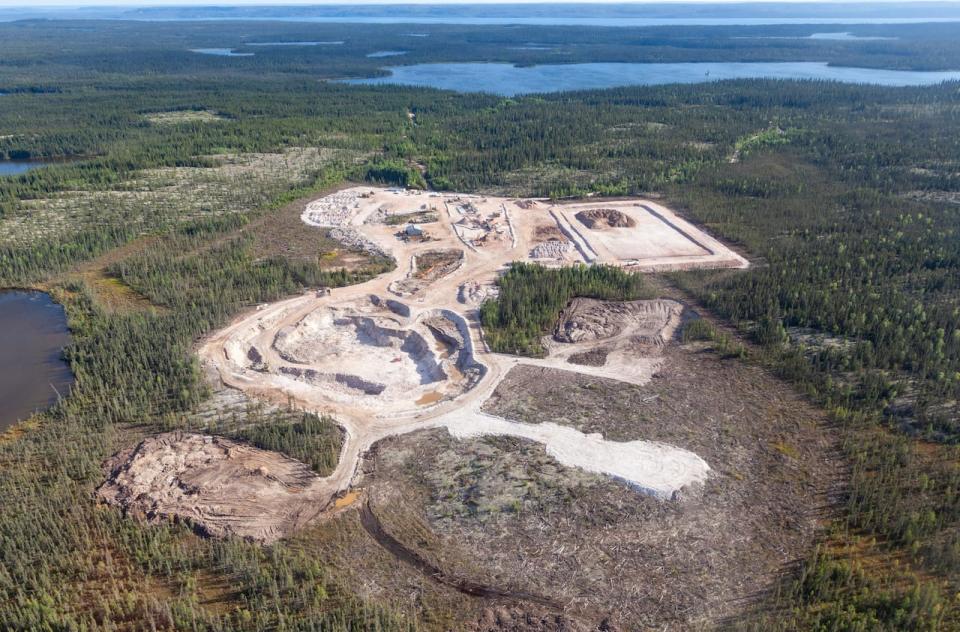Experts warn about potential risks of foreign investment in Arctic mining

Some representatives of the federal government and northern mining experts are issuing a warning about the risk of foreign investment in Arctic mining.
During a panel at the Nunavut Mining Symposium Thursday, representatives from the Canadian Security and Intelligence Service (CSIS), the RCMP and the Canadian Northern Economic Development Agency (CanNor) discussed foreign companies' interest in Canadian northern mining, and what that could mean for Arctic security.
"The North has so many resources, and these resources are of interest to the world," said Jimi Onalik, president of CanNor.

An aerial view of the Nechalacho mine site in near Yellowknife N.W.T. (Bill Braden/Vital Metals)
Panelists pointed to the Nechalacho rare earth project as an example of China's interest in northern mining. The project was once recognized as a solution to Chinese dominance over the market, but in 2023 a Chinese company became a major investor.
"Promises were made that were broken," Dennis Patterson, Nunavut's former senator and former premier of the Northwest Territories, told CBC. Patterson also moderated Thursday's panel.
The risk, according to Adam Lajeunesse — an associate professor of public policy who focuses on Arctic sovereignty and security at St. Francis Xavier university — is that a stake in a major mining project could give a Chinese state-owned company leverage.
"It's more dangerous in the Arctic because the region's economy is so much smaller than southern provinces," he told CBC.
Because one mine could contribute a disproportionate amount to a territory's economy, foreign investment into a couple of mining projects could allow a Chinese-owned company, for example, to own five or 15 per cent of a northern territory's economy, Lajeunesse said.
But Heather Exner-Pirot, director of energy, natural resources and environment at the Macdonald-Laurier Research Institute in Ottawa, told CBC it's difficult to avoid when it's such a challenge for mining companies to raise capital.
"If you're exploring in the Arctic and you need to get some more money to move to the next stage, they don't have a lot of options and the Chinese would love to be their option," she said.
Exner-Pirot said it's incumbent on the federal government to make those investment opportunities more enticing for investors closer to home.
"Western countries need to provide not just sticks just to keep people away from China, but some carrots so that projects can move forward."

Dennis Patterson said that mining companies should be wary of who they go into business with and be aware of regulations in place to protect them. (Matisse Harvey/Radio-Canada)
Patterson said he was disappointed the federal government didn't intervene into the Nechalacho investment. He pointed to the Investment Canada Act that allows for a national security review of foreign investment into Canada.
He said private companies should enter partnerships with skepticism and know who they're doing business with.
"We know that it's hard to raise capital to develop our rich mineral resources in Nunavut because of the remoteness, the high cost, the lack of transportation infrastructure.
"If you're approached by particularly foreign investors, get to know your partners, make sure that you understand where they're coming from, be wary," he said.
Patterson also said companies should be aware of government regulations in place to protect them.


